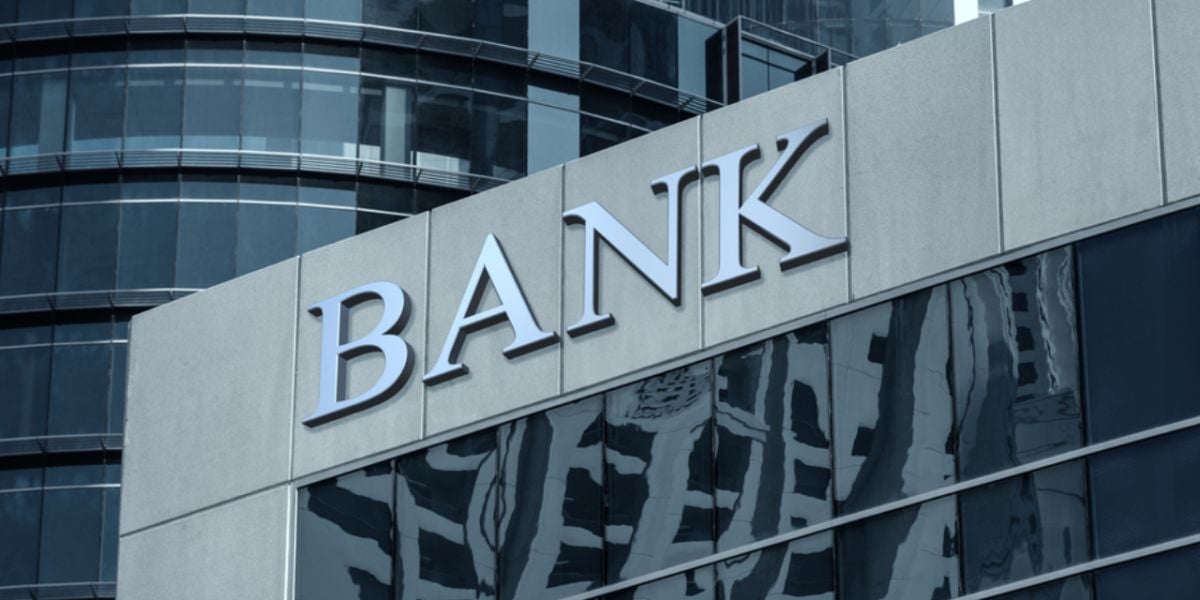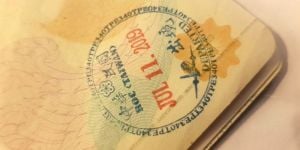
Whether you're a business owner, a student, or a foreign professional living in Taiwan, having a local bank account is essential for managing your finances and accessing financial services. But with so many banks and financial institutions to choose from, it can be overwhelming to know where to start. In this article, we will introduce you to the banking landscape in Taiwan, including the different types of banks and accounts available, as well as the fees and requirements you need to know before opening an account.
Currency in Taiwan
The official currency of Taiwan is the New Taiwan Dollar (abbreviated as NTD, NT$, or TWD). Coins come in denominations of 1, 5, 10, and 50, while bills are denominated in 100, 500, and 1,000. You may occasionally see a 200 bill, but they are rare.
Financial system in Taiwan
Most of Taiwan still operates on the cash system, but many higher-end restaurants, bars, hotels, and shops will accept credit cards. Grocery stores generally have deals with one specific local bank, allowing customers to only use that bank's credit card at the store, but Carrefour and Jason's Marketplace accept all cards. It is therefore recommended always to carry plenty of cash.
An EasyCard or iPass (IC metro cards from Taipei and Kaohsiung, respectively) can be loaded with money and used at convenience stores and a few select coffee shops such as Starbucks. You can add money (cash only) to the cards at metro stations or in convenience stores.
ATMs in Taiwan
ATMs can be found everywhere in Taipei; however, some machines charge higher fees for transactions, or won't accept your international card. If you have a MasterCard, you will have more difficulty finding an ATM that accepts it, although most ATMs claim to accept MasterCards and all the other types of bank cards. Sometimes your best bet is to get money at 7-Eleven or FamilyMart.
Some visitors claim that Taiwan Cooperative Bank does not charge an ATM fee for international card users. The average ATM fee in Taiwan is NT$ 100 per transaction.
For some foreign ATM cards, the daily limit is either NT$ 5,000 or NT$ 10,000 for withdrawals. In some cases, you may only withdraw NT$ 5,000 at a time.
Opening a bank account in Taiwan
There are numerous banks throughout Taiwan, and the main ones are Mega Bank, CTBC, Chang Hwa Bank (CHB), Cathay United Bank, Taiwan Cooperative Bank, E.Sun, and Fubon. Citibank also has branches in Taiwan, but not as many as local banks. They offer the same services as local banks, and their ATMs can be found throughout Taiwan.
To open a local bank account in Taiwan, you must have an Alien Resident Certificate (ARC) and a valid passport. Americans are required to fill out additional forms to conform with FATCA standards. If you have all the documents prepared, a bank account can be opened on the same day of the application. The process usually takes about an hour.
Opening an account at a larger bank branch or in a popular expat area will increase the likelihood that the bank staff can assist customers in English.
If you are a legal resident in Taiwan, you can open a bank account anywhere. However, your employer will require a specific bank account to deposit your salary.
Bank transfers within Taiwan are free of charge. You can pay rent or transfer funds from any ATM as long as you have the other party's bank account number.
To apply for a local credit card, you will need not only the ARC and a valid passport but also a local guarantor. A credit card application can take up to a month to process. Setting up an automatic bill pay may also take up to a month.
Mobile payments in Taiwan
Recently mobile payment apps are gaining popularity in Taiwan to make traveling easier.
Taiwan now allows Apple Pay, LINE PAY, Samsung Pay, Android Pay, AliPay, and Tenpay. Shops that accept these payment methods will display signs indicating which apps they use. Even some night market vendors now accept payment via mobile apps.
English service at Taiwan banks
As part of Taiwan's bid to be a fully bilingual nation (Mandarin Chinese/English) by the year 2030, all banks in the country have pledged to provide service in both Mandarin and English by the time that same year rolls around.
In 2019, two banks with branches in Taipei's Tianmu area, known for its large contingent of expatriate residents, were designated as models for this new bilingual service. These banks were Mega International Commercial Bank and DBS Bank Taiwan. The parent company of DBS is based in Singapore, which is already a multilingual country, and the Taiwan branch said it would follow the experience and guidance of the parent company. Mega Bank, meanwhile, indicated that it would send staff overseas for training in providing service in English.
By 2020, Taiwan's Financial Supervisory Commission had paid inspection visits to branches of different banks in Taiwan and indicated that 69 banks nationwide were already offering services in English. According to Financial Supervisory Commission data, that number skyrocketed to 827 by December of 2022.
For an up-to-date list of all banks in Taiwan which offer financial services in English, please consult the official website of the Financial Supervisory Commission.
What is the largest foreign bank in Taiwan?
In terms of assets, by the end of quarter three of 2023, DBS Bank Taiwan was set to become the largest foreign bank in Taiwan, owing to its scheduled takeover of Citibank Taiwan Ltd.'s consumer banking operations. The acquisition was valued at just over US$3 billion.
What US banks have branches in Taiwan?
Four U.S. commercial banks operate branches in Taiwan, and all of those branches can be found in the capital, Taipei City, and furthermore, are all located within the same area in the city's Xinyi District around the famed Taipei 101 Building. Those banks are:
- Bank of America
- Citibank N.A.
- JP Morgan Chase Bank, N.A.
- The Bank of New York Mellon
For a full listing of local branches of foreign banks in Taipei, please consult the official website of the Central Bank of the Republic of China (Taiwan).
What is the financial environment in Taiwan?
Following World War II, Taiwan was faced with severe poverty. From 1895 to 1945, Taiwan had been under the control of a Japanese colonial government. But with Japan's defeat in WWII, a period of transition began, with an influx of Nationalist troops from China, fleeing defeat in the Chinese Civil War in 1949. This paved the way for what would be decades of martial law and dictatorship under the rule of Generalissimo Chiang Kai-Shek and then his son and heir, Chiang Ching-Kuo.
This period of martial law and dynastic rule, however, coincided with the era known as the Taiwan Economic Miracle. This was a period of rapid industrialization, during which Taiwan was transformed from a largely agrarian society to one dominated by mass manufacturing and technological concerns.
Fast forward to the modern day, and Taiwan is listed as a high-income country by the World Bank. As per statistics compiled and released by the International Monetary Fund, Taiwan's Gross Domestic Product (GDP) in the year 2022 is estimated at over US$ 828 billion, which places the country 21st among 192 nations ranked. To put this growth in context, in 1980, Taiwan's economy was valued at just over US$42 billion.
It is projected that by the year 2027, Taiwan's GDP will surpass US$ 1 trillion. The GDP per capita, meanwhile, currently sitting at just over US$ 35,500, will top US$ 45,500 by 2027.
As for further indications of Taiwan's overall economic health, the country was, in 2022, the fourth largest holder of foreign exchange reserves in the world. Furthermore, Taiwan ranks 12th in terms of gold reserves, with its holdings valued at US$ 548 billion and weighing in at over 423 tons.
What are the Financial Services companies in Taiwan?
For a country of just 23 million people, there is a relative glut of banking and financial services options in Taiwan, with some reports referring to Taiwan as over-banked.
By the end of 2022, for example, Taiwan was home to 39 commercial banks with nearly 3,400 branches nationwide between them. Twenty Taiwanese banks rank within the top 500 in the world in terms of tier-one capital. If one includes these postal service banks, along with financial holding companies, branches of foreign banks, credit co-ops, and bills finance companies, the total number of branches tops the 5,000 mark.
The bank which sees the largest percentage of total deposits is the Postal Remittances and Savings Bank, which operates out of the country's network of nearly 1,300 post offices. This bank offers only remittance and deposit services and yet sees over 12 percent of Taiwan's total deposits.
Regarding financial holding companies, there are currently 15 operating in Taiwan, aided by the 2001 Financial Holding Company Act, which was aimed at heightening the competitiveness of Taiwan's financial institutions and expanding their scope.
For the full list of Taiwan's Financial Holding Companies, please consult the official website of the Banking Bureau of the Financial Supervisory Commission.
What are the challenges of banking in Taiwan as a foreigner?
There can be a number of issues that come into play, even when attempting to do things that should be quite simple when banking in Taiwan as a foreigner. For example, all official bank documents require one's full name, as listed on identification, such as one's passport, Alien Resident Certificate, or Alien Permanent Resident Certificate. The problem is that at some banks, systems are not equipped to handle the number of characters required for longer foreign names, as the names of local Taiwanese are often, at maximum, only three characters long.
Can foreigners in Taiwan get a credit card?
Long-term residents living and working in Taiwan may wish to apply for a credit card, most often through the institution wherein their salary is remitted. This may seem like it should be a simple, straightforward process, but this is rarely the case. Many banks in Taiwan, as a matter of internal policy, refuse to issue credit cards to foreign nationals without a local guarantor. Bizarrely, the local guarantor themselves is rarely subjected to a credit check. The most common reason given for not issuing credit cards to foreign nationals in Taiwan is the fear that the said foreigner will leave the country without paying their outstanding credit card debt, thus leaving the bank holding the proverbial bag.
Secured credit
One option which avoids the local guarantor route in Taiwan is secured credit, offered by such institutions as Chang Hwa Bank. In this case, a foreign resident can set aside an amount that is 20 percent above their monthly credit card limit. For example, if they wish to have a monthly limit of NT$ 100,000, NT$ 120,000 would be deposited in that separate account. This way, if the foreigner does leave with any outstanding credit card debt, that amount can be debited from that separate account, thus alleviating the bank's concerns. It is noteworthy that there is actually no legal justification for denying anyone a credit card in Taiwan based on nationality, and under the financial inclusion policy of the Banking Bureau of the Financial Supervisory Commission, banks are not allowed to have regulations that preclude foreigners from obtaining a credit card. However, the practice of foreigners being denied a credit card, even at banks they have been with for years, is anecdotally widespread in the foreign community.
Online banking for foreigners in Taiwan
Online banking and merely receiving approval to do any banking online, even simple transactions, can also be a headache for foreigners residing in Taiwan—even those residing long term. Taiwan has strict anti-money laundering laws and regulations, which heavily scrutinize any transactions originating from overseas, which is the pretense many of Taiwan's banks use to preclude (again, against actual inclusion regulations pertaining to banking in Taiwan) foreign residents from taking advantage of online banking services. It is possible for foreigners in Taiwan to gain access to online banking services, but the process can take months, potentially, whereas Taiwanese citizens can gain access to the same services as long as they are of the age of majority, with a single visit to the bank.
Using PayPal and Payoneer in Taiwan
PayPal
It is possible to receive funds from overseas to your PayPal account while residing in Taiwan. However, due to anti-money laundering laws in Taiwan, two people who are residents of Taiwan cannot transfer money to each other. Furthermore, only one bank, E.Sun, allows customers to withdraw funds from their PayPal account to their E.Sun Bank account. For the procedures involved in setting up an account at E.Sun, which allows for PayPal transfers, please visit E.Sun's official website.
Payoneer
By contrast, withdrawing funds from a Payoneer account to a local bank account in Taiwan is relatively straightforward. Simply go through the withdrawal process on your Payoneer account, which you will have to link to your local bank account in Taiwan. Once the funds are transferred to your local account in Taiwan, you will receive a phone call from your bank branch as a matter of course, during which the bank staffer will wish to verbally confirm the source of the funds (income, gift, etc.) for their internal records.
We do our best to provide accurate and up to date information. However, if you have noticed any inaccuracies in this article, please let us know in the comments section below.











